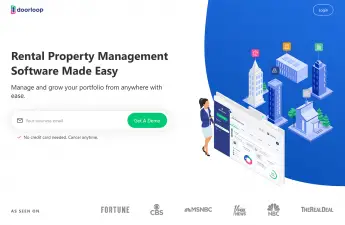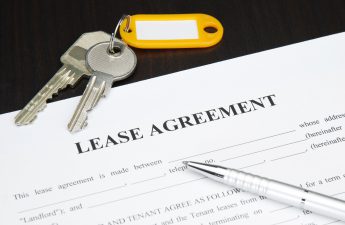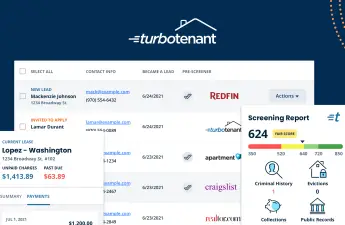Once you’ve identified a property to purchase, you then need to focus on the property management aspect. In this installment of Landlording A-Z, we’ll discuss the process of weighing whether you have the time, ability, and desire to manage your property yourself or if you should hire a property manager. Below is a brief rundown. See the complete episode for more information.
In an earlier episode, we discussed the various tasks you’ll need to cover, and skills you may need to learn when self-managing, such as:
- Finding tenants
- Navigating laws and rules
- Managing maintenance
- Bookkeeping
Here are some other things to consider whether you should hire a property manager:
- Geography: What is your proximity to the property?
- Size/scale of rental business: How many properties and units?
- Time constraints/commitments
- Lack of expertise/complexity: What skills do you have, or possibly lack?
- Focus on investment/other aspects of portfolio rather than operations
How Much Does Hiring a Property Manager Cost?
Usually, property managers will charge percentage based, meaning they’ll take around 8–12% of total rent. Some of them will charge a fixed rate, flat fee, which is typically around hundreds of dollars per month. However, they also charge additional fees, such as placement, lease renewal, setup, vacancy fee, travel surcharges, maintenance coordination fees, eviction fees, and termination fees.
To see how much a property manager may cost for you, visit the property management fees calculator on our website.
![]() Also Read: How Much Does a Property Management Company Charge?
Also Read: How Much Does a Property Management Company Charge?
Pros of Hiring a Property Manager
- A property manager can handle the marketing, screening, leasing, and maintenance of your rental property, saving you time and hassle.
- They can deal with tenant issues, complaints, and requests, ensuring a positive relationship and reducing the risk of conflicts and disputes.
- A property manager can collect rent, enforce lease terms, handle evictions and legal matters, protecting your income and your rights as a landlord.
- Property managers will keep your property in compliance with local, state, and federal laws and regulations, avoiding fines and penalties.
- A property manager can provide you with regular reports, financial statements, and tax documents, keeping you informed and organized.
Cons of Hiring a Property Manager
- A property manager will charge you a fee for their services, typically a percentage of the monthly rent or a flat rate per unit. This can reduce your cash flow and profitability.
- He or she may not have the same level of care and attention to detail as you would have for your own property. They may make decisions that you disagree with or overlook issues that you would have noticed.
- A property manager may have conflicts of interest or loyalty with other clients or vendors. They may favor certain tenants or contractors over others, or sometimes even receive kickbacks or commissions for referrals.
- A property manager may have limited availability or responsiveness. They may be hard to reach or communicate with, or fail to address problems in a timely manner.
Self-Managing
We believe in self-managing and believe that this results in long-term benefits, increased profitability, and better alignment with your goals. However, we have identified these major pain points of self-managing:
- Finding renters : Lots of steps including advertising, responding to inquiries, showings, screenings
- Managing Maintenance : Making repairs, dealing with emergencies, finding/working with vendors, etc
- Evictions: Rare (hopefully) but time-consuming, many legal potholes, very costly
- Bookkeeping : You are operating a small business. All financial transactions need to be tracked and reported. Even if you are hiring an accountant to do your taxes, you still need to do a lot of prep in order to hand off to them.
Hybrid Approach to Self-Managing
A hybrid approach can be done through services that combine software, centralized coordination, and local professionals. This allows landlords to choose which tasks they want to do themselves and outsource the rest. Here are some examples:
- Hemlane is a free property management software product, with options for maintenance triage & coordination, as well as either self guided or in-person showings using a local real estate agent.
- RentalRiff provides local “property specialists” who will make or arrange for repairs, and is your boots on the ground when you need someone who can be at the property for one reason or another.
The benefits of having a hybrid approach are that it’s cheaper and there is lots of flexibility, while still having as much control as you prefer.
Takeaway
In terms of property management, we think you can and should self-manage your rental properties. It improves profitability, while also giving you control of a significant investment. However, you should consider getting help with certain aspects that you can’t or don’t want to do. This may include hiring a handyperson, agent, or bookkeeper. We also firmly believe that you should use a property management software tool, as it makes every aspect of management easier, faster, and smoother. Our landlord toolkit provides reviews of all the leading products, so check it out to decide which is best for you. We also offer tons of additional advice and information on our website to help ease this process for you.
Landlording A-Z Series
Our Landlording A-Z series will walk you through each of the stages, tasks, and issues involved in rental real estate investing. In our next installment, we’ll discuss getting your new rental property ready to rent.




